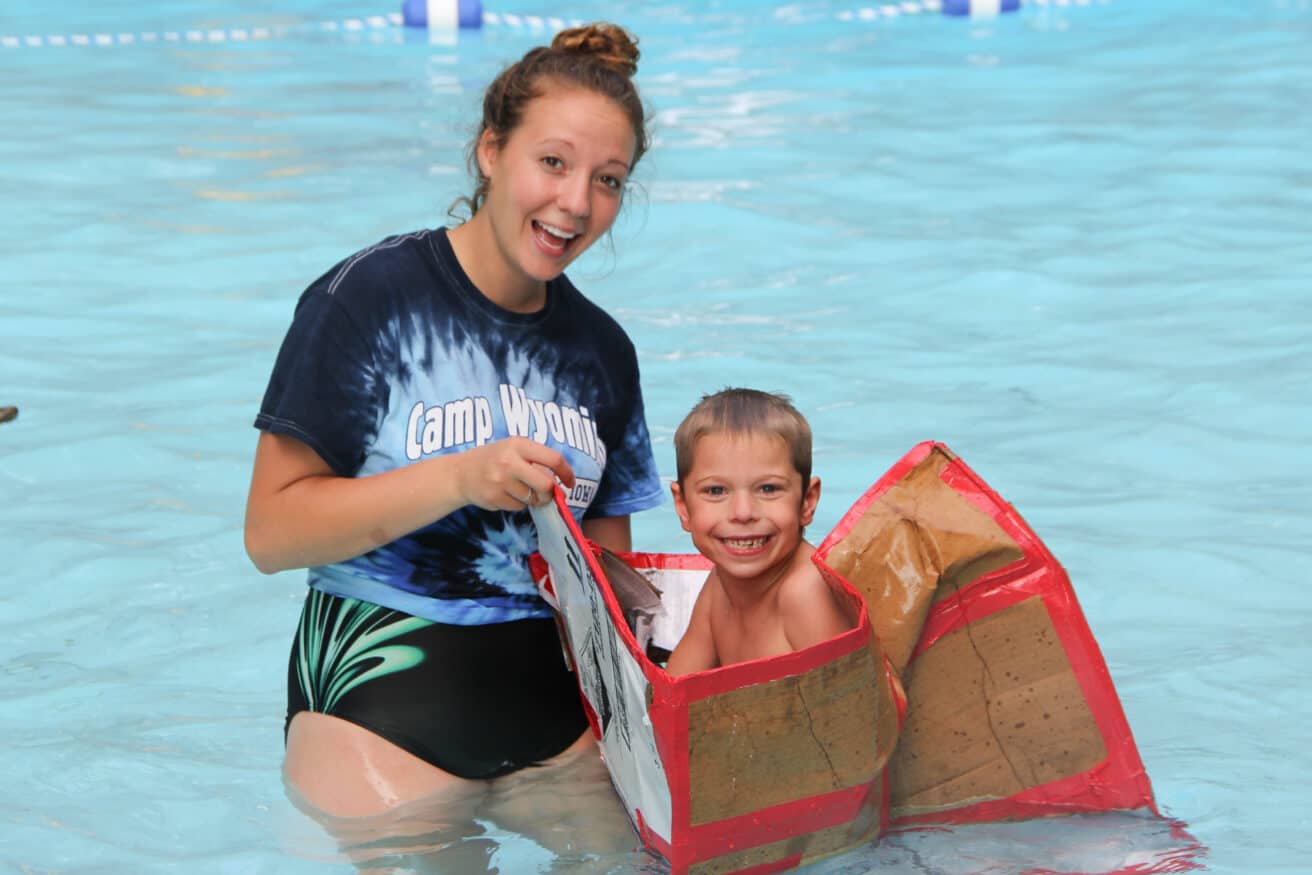
Leadership is a skill that is often developed at camp. Here at Camp Wyoming, our Leaders-in-Training program is designed to specifically teach teenagers how to lead, how to take charge of a situation, how to teach and coach, and how to work alongside others. However, you don’t have to come to our Leaders-in-Training program to develop your leadership skills. Children of all ages, whether they are here for just a partial week or coming for their 5th summer, will learn about what it means to be a leader when they come to camp. The summer camp environment has many elements that foster leadership skills in the children and youth who attend.
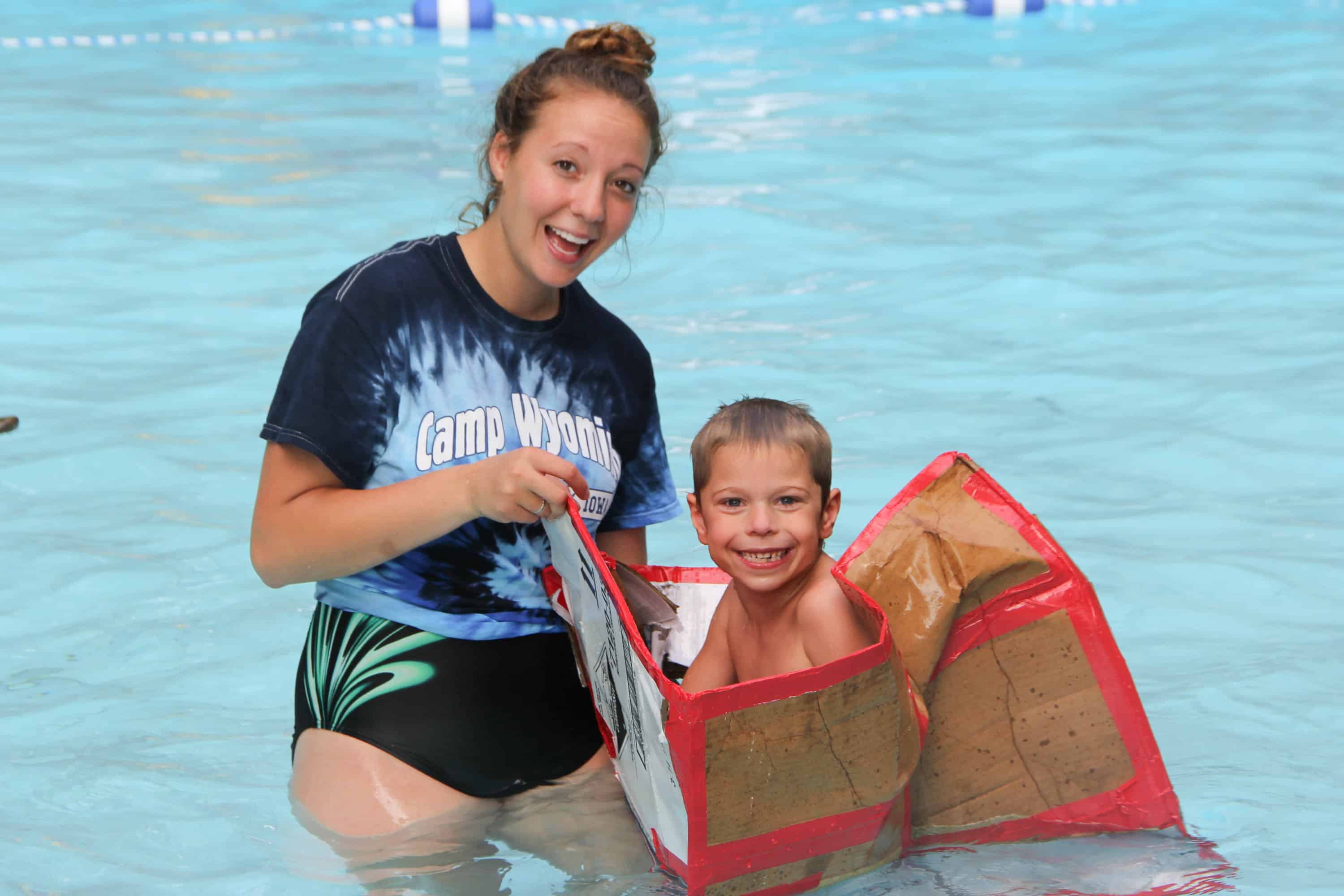
First, campers are placed in small groups where college-age counselors lead and model camp life. Their counselors teach them about the camp rules, pray with them, play games with them, keep them safe, and are there to model Christian values day in and day out. As they watch their counselors—individuals that campers often look up to and perhaps even aspire to be—they are shown what a true leader looks like. Their counselor empathizes with them when they are missing home. They discipline when rules are broken. They teach and inspire, and in doing so, provide every camper with a model to follow.
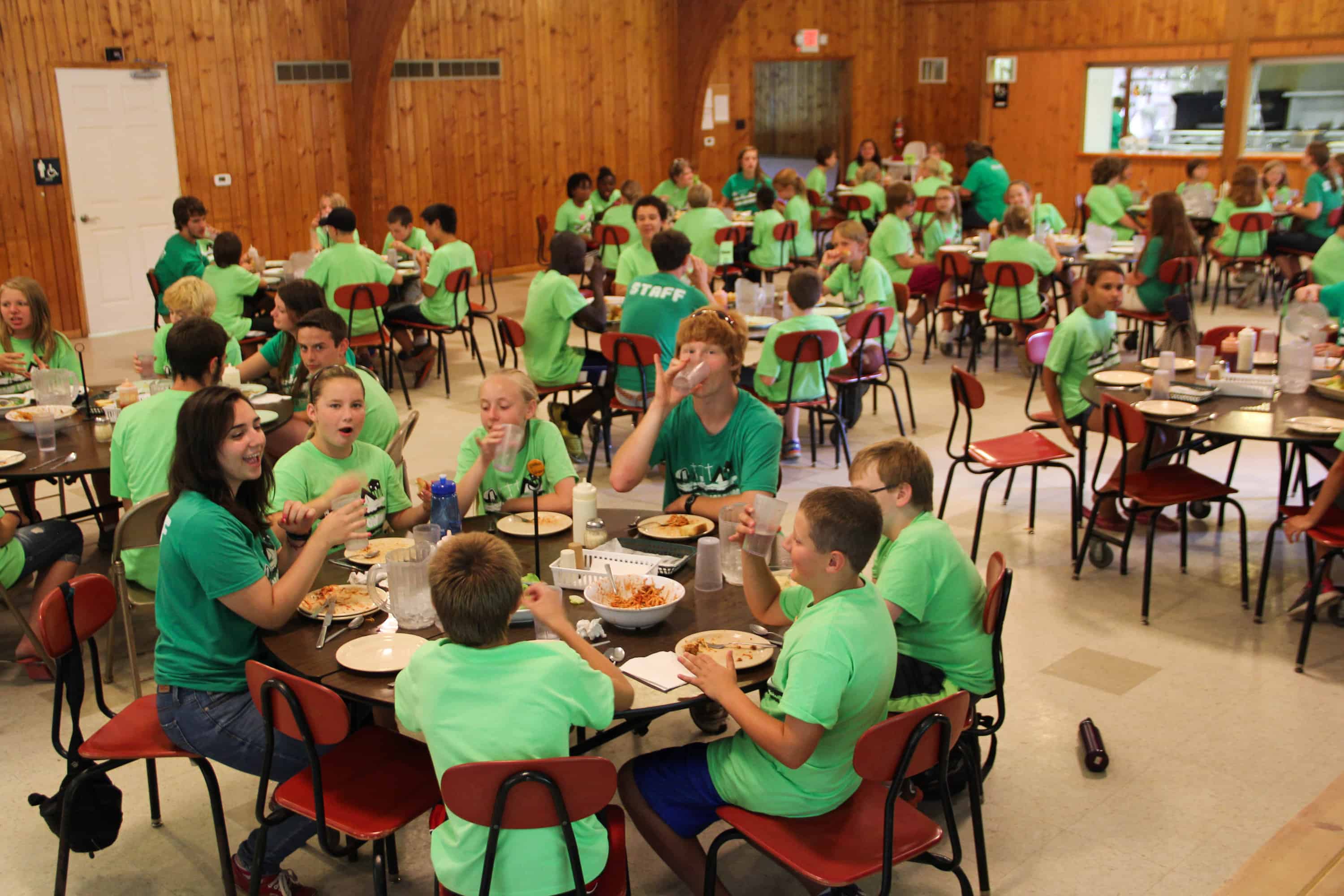
Second, campers are given opportunities to serve and help others. Whether it is by setting the tables before a meal, helping clean an area of camp, bringing the food for their table, or helping to carry equipment and supplies for an activity, campers have the chance to see themselves as members of a community. Every member has to chip in and do its part in order for the community as a whole to thrive. When campers recognize their place in the community, they see the value that they can bring, and they often start to look for ways on their own that they can serve and help others. They take on the role of a leader, taking the initiative to step in and meet the needs of others as they are able.
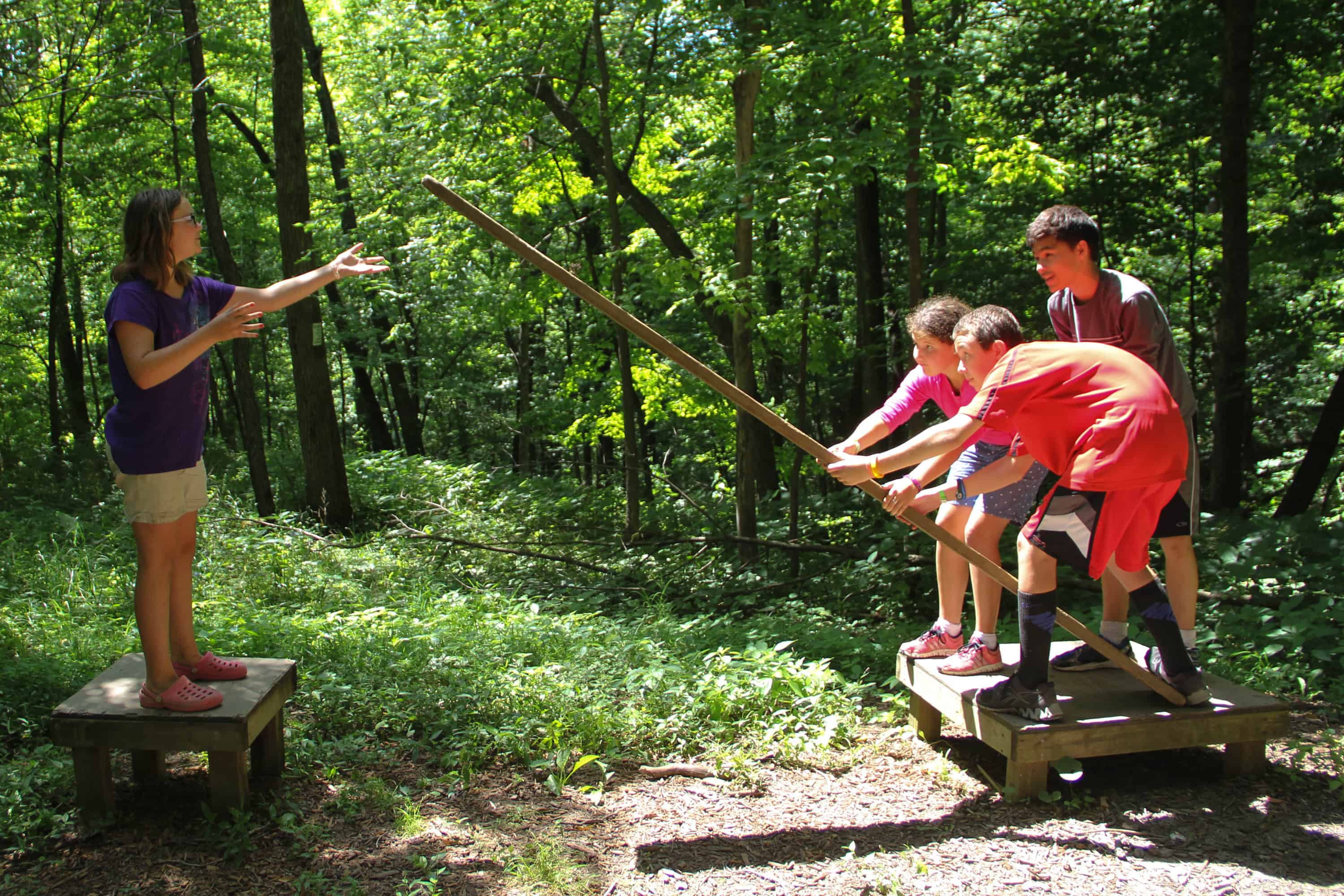
Third, many camp activities are designed to help teach and foster leadership skills. When their group is in the challenge course, campers learn about listening to everyone’s voices and ideas, sharing workload and challenges, communicating, and supporting members who are unsure or struggling. As they paddle a canoe, they learn to talk with their partner to navigate challenges and obstacles, make decisions about the best route to take, and work together to accomplish a task. For every activity at camp, they are not only learning a skill or sport, but also learning to take initiative, to ask questions, to work with others, and to be confident in their own abilities—all traits of good leaders.
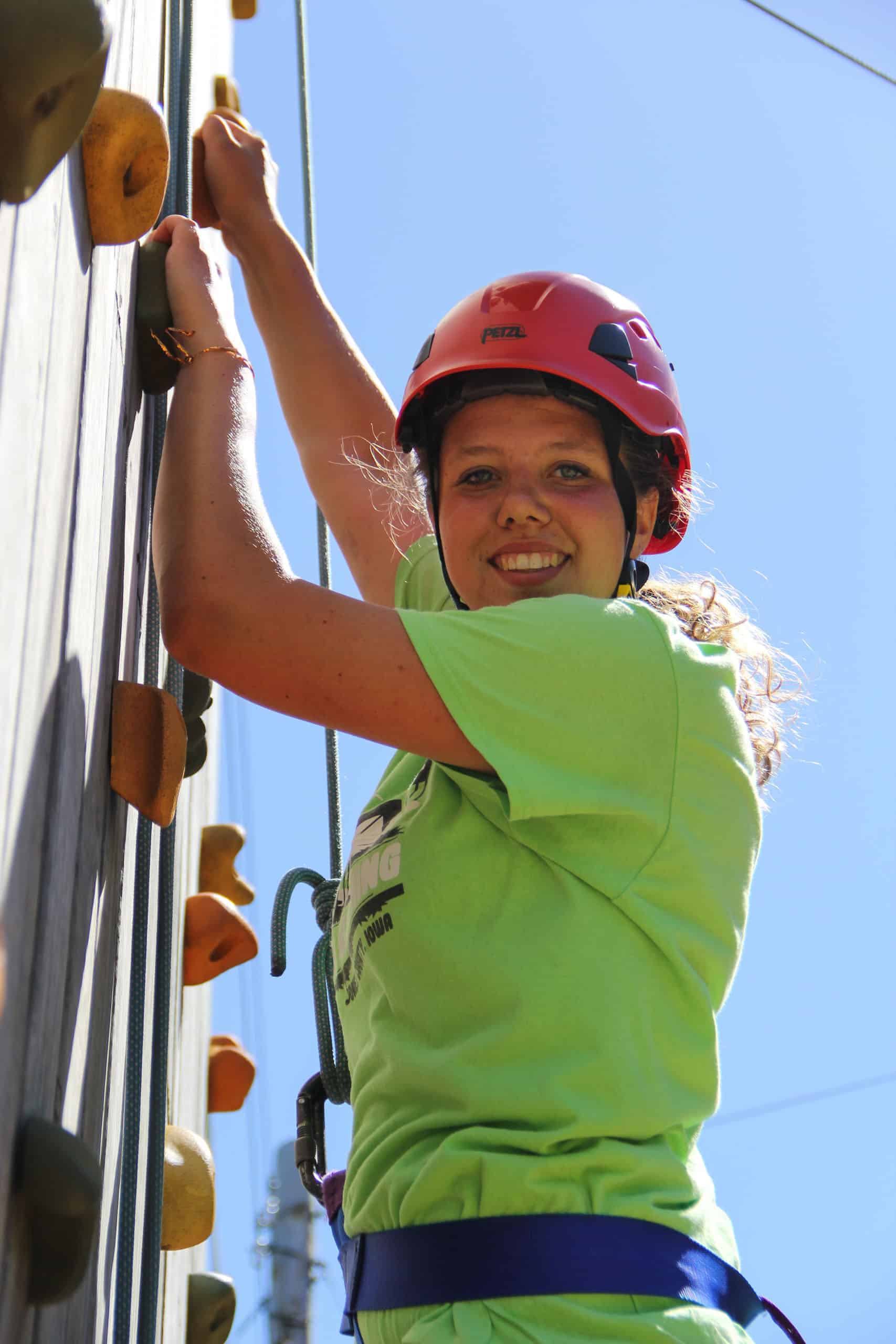
Fourth, being in an environment where they are away from home and from their parents forces campers to take control of their own situation, belongings, and experiences, and in doing so, they begin to see themselves as independent beings. If they are capable of making their own decisions and taking care of themselves, they soon learn that they are also capable of having valid ideas, of being able to step in and comfort their friend who is homesick, and of engaging in conversations and decisions that affect the whole group.
There are so many other aspects of camp that foster and inspire leadership in the children and youth who attend. And perhaps this is why so many summer campers grow up to be leaders in their workplaces, churches, and communities. They may think that they are coming to camp to have fun, but along the way, they are also growing into wonderful, confident, and compassionate men and women.
